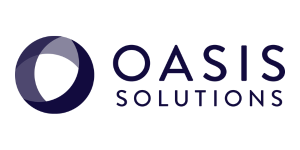With tax season upon us some HR departments and small business owners are struggling with payroll processing. Because the process can be overwhelming errors are often made. These errors can lead to considerable penalties or fines. These 5 tips can help your organization keep your payroll in compliance in 2013.
- File Forms on Time - Since 1996 the federal government has required all employers to report new hires to their individual states. The states then report the new employee to the National Directory of New Hires. Most employees must be reported within 10-20 business days. Employers should keep a copy of W-4 and I-9 forms on file for every employee. Failure to report the appropriate information or file the correct forms (at the correct time) could lead to an audit by the IRS. Filing the correct forms is just as important as filing them at the right time. If you’re unsure whether a document is required it is best to err on the side of over-preparation.
- Reporting Workers as the Correct Classification - Workers can be classified as: employee, independent contractor, statutory employee or a statutory non-employee. With so many classifications it may be difficult to determine how to report an employee. Make sure you use the IRS Form SS-8 to determine worker status for tax purposes. Upon submission of this form the IRS will notify the employer as to what category a worker should be classified under. Until the employer receives the worker classification, taxes should be withheld and wage and tax information reported. Not withholding taxes or reporting wages during this period could result in a company paying more to the government after filing taxes.
- Tax Regulations for Families - If a child under 18 is employed by a parent, he/she does not have to file for Social Security, Federal Unemployment or Medicare Taxes. If the child is still employed after his/her 18th birthday, Security and Medicare taxes are withheld. The child can continue to be exempt from federal unemployment taxes until he/she turns 21. U.S and state Labor Departments monitor classification very closely so it is important to report any family relationships with employees. Spouses who are employed by one another through a sole proprietorship must have Medicare and Social Security taxes withheld but may be exempt from federal unemployment taxes.
- Fair Labor Standards Act (FLSA) - The Federal Government sets the standards and regulates workplace issues like minimum wage, overtime pay, child labor, record-keeping and equal pay. Mistakes concerning these issues are among the most common FLSA compliance issues. Business owners must also comply with state regulations regarding specific standards in the workplace. When conducting payroll, it is imperative that HR managers and business owners check their state laws to ensure that they are in compliance.
- Keep Records Organized – All documents regarding an employee must be kept on file by the employer. Paper documents (especially for new hires), reviews, disciplinary actions and termination paperwork should be stored in a secure location even after an employee has left. Below is a list of time regulations for employee documentation from the FLSA:
- Employee payroll records must be stored for at least three years after the last entry date.
- IRS requirements state that employee records must be held on file for four years after the employee has left the company.
- Any workplace with 50+ employees must keep records regarding any employee leave in compliance with FMLA.
- States adhere to individual laws governed by unemployment agencies that require businesses to retain employment records. The amount of time these records must be kept varies by state from four to seven years.
Neglecting to maintain proper payroll paperwork could lead to trouble with state or federal governments. The U.S. Department of Labor website is a helpful resource for anyone with questions about payroll policy.
If you need service, support, training or advice about Human Resource Management Software, Oasis can help. HR/Payroll software can help you avoid many of the common compliance errors made by small/medium sized businesses. For more information about how Oasis Solutions Group can help, contact us at oasisky.com, techsupport@oasisky.com or 502-429-6902.


